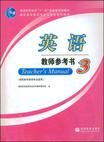英语教师参考书3
出版社:高等教育出版社 作者:编写组 页数:202
前言
近些年来,我国高职高专教育的改革和发展取得了长足的进步,无论是学校数量,还是在校学生人数都占到高校总数和学生人数的一半以上。高职高专英语专业学校的数量和学生人数也增长很快。为了满足新形势对高职高专英语专业教育和人才培养的需求,我们编写了高职高专英语专业立体化系列教材《英语》,该套教材被列为普通高等教育“十一五”国家级规划教材。 本套教材力图体现我国高职高专英语专业教学实践的特点,遵循高职高专教育“实用为主、够用为度”的总体指导方针,充分反映中国学生学习英语的规律和要求,并体现我国英语教学研究的新成果、新思想和新理念。教材的设计充分考虑高职高专英语专业的课程设置、课时、教学要求及高职高专英语专业人材培养的要求与目标,力图处理好打好英语语言基础与培养英语语言应用能力的关系,强调英语语言基本技能的训练与培养实际使用英语从事涉外交际活动的应用能力并重。 《英语综合教程》为这套立体化系列教材的主干教材之一,包括基础阶段3册和专业阶段1册。 本书为《英语教师参考书》第3册,属基础阶段教材,共8个单元,供二年级第一学期使用。为了使广大教师能够更好地了解本书的单元结构,从而更好地使用本教材,下面就各个单元的具体组成部分作如下说明。 0biectives部分列出了本单元的教学重点,以方便教帅教学。Introduction部分设置了一些与本单元课文内容紧密相关的问题,通过提问为学生更快、更好地进入文章的学习作铺垫。0utline部分列出了本单元文章的段落划分,侧重培养学生的语篇意识。Detailed Study ofthe Text部分列出了本单元文章学习中的重点词语、句式以及常用搭配等,并补充了例句供教学中使用。Summary ofthe Text部分对本单元的文章内容做了小结,以加深学生对文章的理解,教师也可用它作为课堂上的听写材料。
内容概要
《英语教师参考书3(高职高专英语专业适用)》为《英语教师参考书》第3册,是配合《英语综合教程3》的教学编写的教师参考书,内容包括《英语综合教程3》各单元的教学重点、课文语言点讲解、课文内容提要、背景知识介绍、翻译、写作和阅读技能练习的要点说明、全部的练习参考答案和课文参考译文。 《英语》系列教材为普通高等教育“十一五”国家级规划教材,供高等学校高职高专英语专业使用。《英语综合教程》是这套系列教材的主干教材之一,分为基础阶段和专业阶段,其中基础阶段共有3册,专业阶段1册。
书籍目录
教材使用说明Unit 1 Scientists’Social ResponsibilityUnit 2 A Lifetime GiftUnit 3 Gateways to Other WorldsUnit 4 Job HuntingUnit 5 A Road to Your FutureUnit 6 The Root of HappinessUnit 7 The Power of KnowledgeUnit 8 College
章节摘录
The empirical evidence suggests that many popular beliefs about the sources of happinessare unfounded. The data also demonstrate that happiness is shaped by a complex constellationof variables. In spite of this complexity, however, a number of worthwhile insights about humanadjustment can be gleaned from research on the correlates of subjective well-being. First, research on happiness demonstrates that the determinants of subjective well-being areprecisely that: subjective. Objective realities are not as important as sub-active feelings. In otherwords, your health, your wealth, your job, and your age are not as influential as how you reelabout your health, wealth, job, and age (Schwarz & Strack, 1999). Second, when it comes to happiness everything is relative (Argyle, 1999). In other words,you evaluate what you have relative to what the people around you have and relative to what youexpect to have. Generally, we compare ourselves with others who are similar to us. Thus, peoplewho are wealthy assess what they have by comparing themselves with their wealthy friends andneighbors. This is one reason for the low correlation between wealth and happiness. You mighthave a lovely home, but if it sits next to a neighbors palatial mansion, it might be a source ofmore dissatisfaction than happiness. Third, research on subjective well-being indicates that people often adapt to their circum-stances. This adaptation effect is one reason that increases in income dont necessarily bringincreases in happiness. Thus, hedonic adaptation occurs when the mental scale that people useto judge the pleasantness-unpleasantness of their experiences shifts so that their neutral point,or baseline for comparison, is changed. Unfortunately, when peoples experiences improve,hedonic adaptation may sometimes put them on a hedonic treadmill —— their neutral pointmoves upward, so that the improvements yield no real benefits (Kahneman; 1999). However,when people have to grapple with major setbacks, hedonic adaptation probably helps protecttheir mental and physical health. For example, people who are sent to prison and people whodevelop debilitating diseases are not as unhappy as one might assume because they adapt totheir changed situations and evaluate events from a new perspective (Frederick & Loewenstein,1999). This effect is probably related to the fourth conclusion we can draw about subjectivewell-being: Research shows that the quest for happiness is never hopeless (Freedman, 1978;Myers, 1992). Mthough there are no simple recipes for happiness, the evidence indicatesthat some people find happiness in spite of seemingly insurmountable problems. There isnothing, short of terminal illness —— no setback, shortcoming, difficulty, or inadequacy —— thatmakes happiness impossible.
编辑推荐
《英语教师参考书3(高职高专英语专业适用)》是高职高专英语专业适用的“十一五”国家级规划教材系列之一。《英语》立体化系列教材在编写上严格根据高职高专英语专业的教学实践,在教材的设计上充分考虑高职高专英语专业的课程设置、课时、教学要求与高职高专英语专业人才培养的要求与目标;强调打好语言基础和培养语言应用能力并重;强调语言基本技能的训练和培养实际从事涉外交际活动的语言应用能力并重。 《综合教程》共分4册,每册供一学期使用。
图书封面
评论、评分、阅读与下载
